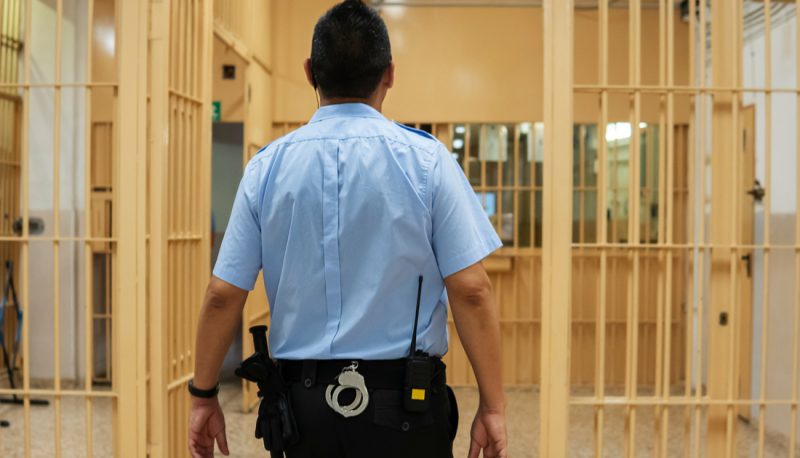Trump Justices Neil Gorsuch, Brett Kavanaugh, and Amy Coney Barrett cast deciding votes in a 6-3 decision that people cannot try to hold police responsible for misconduct concerning interrogations. The majority ruled that a person interrogated without receiving required Miranda warnings cannot sue offending police officers. Justice Alito wrote the June 2022 opinion in Vega v Tekoh.
What happened in the lower courts in the case?
Terence Tekoh worked as a nursing assistant in a Los Angeles medical center. Deputy sheriff Carlos Vega and others interrogated Tekoh “at length” about a report that he had assaulted a patient. The police failed to provide required Miranda warnings, however, and it was disputed whether they also used “coercive” tactics. Tekoh eventually provided a written statement that admitted responsibility and prosecutors used it against him at trial. The trial nevertheless resulted in a finding of not guilty.
Tekoh then filed a civil rights lawsuit in federal court against Vega and other police. He contended that they had violated his constitutional rights under the Fifth Amendment by interrogating him without providing Miranda warnings. The trial judge refused to instruct the jury that this conduct violated the Constitution, and Tekoh lost.
On appeal, the Ninth Circuit found for Tekoh. They ruled that the “use of an un-Mirandized statement against” someone “violates the Fifth Amendment and may support” a federal civil rights lawsuit against police like Vega. The police sought rehearing by the full Ninth Circuit. The court denied rehearing despite a harsh dissent by Trump judge Bumatay and others. The Supreme Court decided to hear the case.
What did the Supreme Court majority do?
The right-wing Court majority reversed. They ruled that people cannot file federal civil rights lawsuits to help hold police accountable for violating Miranda rights.
Lawsuits under 42 U.S.C. 1983 can provide damages against police and other officials who violate people’s rights “secured by the [U.S.] constitution and laws.” According to the majority, however, the constitution does not protect the right to be warned about the right against self-incrimination and to have a lawyer present during questioning. Instead, according to Alito, Miranda “imposed” only “prophylactic rules” that help safeguard the Fifth Amendment right against self-incrimination.
Alito conceded that Miranda could at least be considered federal “law.” But he maintained that this “law” does “not include the right to sue for damages” under 42 U.S.C. 1983.
Alito also claimed that allowing such lawsuits against offending police “would cause many problems.” These could include, he asserted, causing “friction” between federal and state courts. Alito concluded that the “exclusion” of un-Mirandized statements from criminal trials (which did not happen in Tekoh’s case) was generally a “sufficient remedy.” Accordingly, the majority ruled that people like Tekoh cannot sue police to help hold them accountable for violating Miranda.
What did the dissent say and what’s the impact of the ruling?
Justice Elena Kagan strongly dissented on behalf of herself and Justices Stephen Breyer and Sonia Sotomayor. She carefully showed that past Court decisions had established that Miranda “is a ‘constitutional rule.’” And “that rule,” she explained, “grants a corresponding right” under the Constitution to people interrogated by police. The majority’s decision, she went on, contradicts that principle. It improperly “prevents” people from “obtaining any redress when police violate their rights under Miranda.”
Kagan also pointed out that the majority’s ruling contradicts previous Court precedent that “rejected” efforts to “limit the types of constitutional rights” protected by 42 U.S.C. 1983. The Court has found Miranda, she noted, “necessary to safeguard the personal protections of the Fifth Amendment” despite “friction” with local government.
Justice Kagan elaborated on the consequences of the majority’s holding. All too often, a statement by a person to police that violates Miranda “will not be suppressed” at trial. “And sometimes, as a result,” she continued, a person “will be wrongly convicted and spend years in prison.” Even if another court eventually reverses the conviction, “what remedy does he have for all the harm he has suffered?” The majority, Kagan concluded, severely “injures the right by denying the remedy.”
The ruling also seriously harms efforts to promote police accountability. Police violation of people’s rights concerning improper interrogation continues today. For example, Oakland public defenders recently charged police with “routinely” violating Miranda and related protections concerning interrogation of juveniles. Depriving people of the ability to sue offending police for violating their Miranda rights can only harm efforts to hold police accountable for misconduct.

